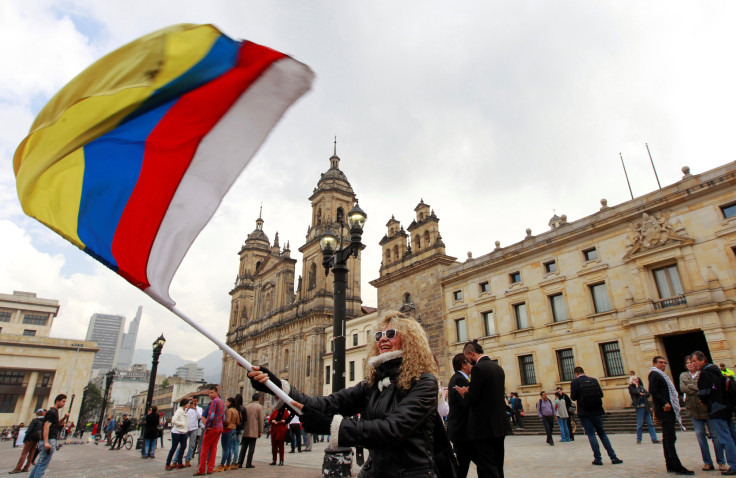Colombia FARC Peace Deal: Congress Approves Historic Accord To End Half-Century Of Civil War

The Colombian House gave final approval Wednesday to a revised peace deal with FARC rebels, in a bid to end more than a half-century of civil war.
The peace deal, which was updated after voters rejected it Oct. 2, was approved despite vocal opposition from former far-right President Alvaro Uribe who led the vote-no effort and whose followers in Congress refused to participate in the vote. Uribe has said the peace deal is far too lenient.
The deal passed 130-0 in the House a day after the Senate voted 75-0, less than a week after it was signed by President Juan Manuel Santos and FARC leader Rodrigo Londoño in Bogota last Thursday.
The revised deal does not need to be approved by voters.
“Tomorrow a new era begins, an era of peace with this adversary we have had for 52 years,” said Santos, who will receive the 2016 Nobel Peace Prize for his efforts.
Santos tweeted his gratitude for the vote.
.@CamaraColombia aprueba refrendación del #NuevoAcuerdo. Gratitud con Congreso por histórico respaldo a esperanza de paz de los colombianos https://t.co/5x9hqz0mNM
— Juan Manuel Santos (@JuanManSantos) December 1, 2016
Congress now has to pass a separate bill to implement the agreement. Authorities are hoping to fast track the legislation to keep the peace deal from falling apart.
The previous deal was rejected by less than a half percentage point in a nationwide referendum. Fifty changes were made to the document although its main points remained intact.
“To achieve an agreement with the FARC after 50 years of war in an agreement which really gets to the roots of the violence, the conditions that have provoked the violence, this guarantees an end to that violence, and it’s nothing less than a miracle,” High Commissioner for Peace Sergio Jaramillo said during Tuesday’s debate.
The deal, which took four years to negotiate, calls for a six-month disarmament and resettlement process to be monitored by the United Nations, bringing an end to the longest civil war in Latin America. During that time they are to form a political party.
The new deal incorporated was worked out when negotiators returned to Havana to resume talks after the voter rejection. The Los Angeles Times said some of the changes imposed more severe restrictions on rebel movements. They also required rebels to reveal drug trafficking routes to enable the Army to move in and prevent drug traffickers from taking over. Additionally, the rebels must provide inventories of assets to be used to pay reparations.
The rebels are guaranteed access to seats in Congress and will receive only minimum house arrest sentences for war crimes.
The government agreed to invest in rural infrastructure and resettle families displaced by the fighting.
Some 7 million people have been displaced since 1958, with more than 260,000 dead, at least 79,000 missing and 30,000 kidnapped, Telesur reported.
“The war has been an open sore for Colombia for five decades,” Bernard Aronson, who was appointed by President Obama as a special envoy to the Colombian peace process, told the Washington Post. “Turning the FARC from a violent revolutionary group into a political party is huge for the economy and security of the country. It means Colombia can emerge as a model success story for Latin America.”
© Copyright IBTimes 2024. All rights reserved.






















